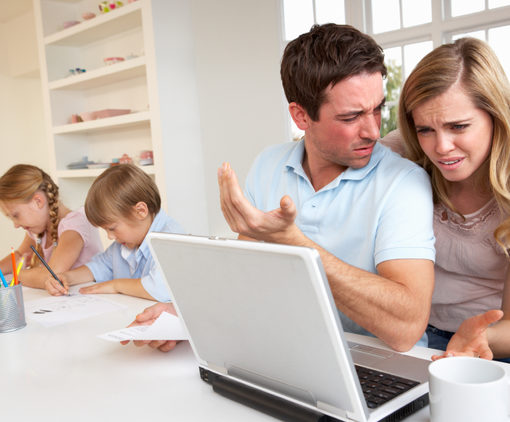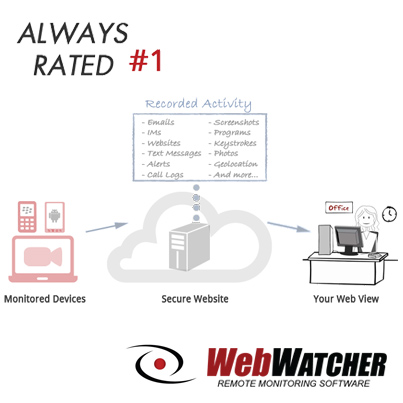Laura McClellan is an attorney in a large Dallas law firm, and she also hosts The Productive Woman, a weekly podcast about productivity for busy women. We had a chance to sit down with Laura and hear her thoughts on motherhood, her growth as a person, and how to make sure that children are safe and loved.
Why did you choose to start The Productive Woman?
Two reasons, really. First, to share with other busy women the ideas and information I’ve assembled over a lifetime of studying productivity. Second, to create a space where a community of women could encourage and support each other in their efforts to accomplish their goals and make lives that matter.
Since you first became a mother at age 20 while in college, how did your relatively young age influence your view of motherhood or parenting?
I am the oldest of six kids, so I felt pretty comfortable about my ability to care for a baby; but that does not in any way mean I felt prepared to be a mother. I was fortunate, though, to have some great role models. My own mother taught me by her example about being fiercely devoted to your children’s well-being; and my friend Vicki, who was a few years ahead of me in the parenting journey, modeled the patience and prayer needed to mother young ones.
I believed, and still believe, that there’s nothing that matters more than parenting well the children you bring into the world. I thought I’ve fallen short many times, but I’ve tried to follow the example of the women like my mom, Vicki, and other mothers I admired.
Your blog says that you like to share “the lessons learned from both the small triumphs of my life and my terrible mistakes” with your readers. Could you give us an example of each type of lesson learned?
One small triumph that comes to mind is an experience from many years ago, when I was a young mother of two under the age of three. My husband was traveling, playing music, and had been gone for some time. We were planning to move across the country to be closer to the headquarters of the ministry he worked for, and the plan was to wait until he came off the road around Christmastime. I had always lacked self-confidence, and very much depended on my husband for a lot of things. But I decided we’d been apart long enough, and I didn’t want to wait until Christmas to start life in our new home, nor did I want Mike to have to spend his break moving us from Washington state to Tulsa.
So I got friends to help me load our belongings into a rented moving truck and drove that beast across the country with a preschooler and toddler, found a home to rent, and got us moved in. So when Mike returned from his tour, he had a home to come to and a family there waiting for him. What I learned out of the experience was that I was much more capable than I’d ever given myself credit for. The confidence it gave me helped me many times in the following years when challenges arose.
As for mistakes, I don’t think I’ll share the specifics. But I’ll say that the lesson I learned is two-fold: first, don’t judge others’ choices out of a self-righteous belief that “I would never do something like that;” because we are all capable of doing worse things than we might believe. And second, even the worst past can be redeemed, and unexpected grace can turn the most awful circumstances into unimaginable good.
What are some of the stresses faced by 21st-century moms that mothers in previous generations didn’t have to deal with?
I think the constant onslaught of information and “inputs” from 24-hour TV, social media, and so on. The world is so much noisier than in past eras, and sometimes it seems almost impossible to find quiet space to think and to process all this stuff coming at us. The pace of life seems so frantic. It takes intentional effort to create those experiences from which meaningful, lasting relationships are formed.
What are some of the activities that you like to do as a family?
Our kids are grown now, so we don’t have a lot of opportunities for activities together. When we can get together, it’s usually going to center around a meal, with conversation and shared laughter over new experiences and old memories. We like to watch a funny movie together, or just hang out in the yard and talk while the kids play.
What were your house rules for your kids’ use of the Internet, computers, and cell phones?
We didn’t give our kids cell phones until they were old enough to drive, because that was the point at which they might be out alone. Before they can drive, they’re always going to be with someone – us, a teacher, or a friend’s parent – who has a phone they can borrow if they need to call home. I know that’s pretty old-fashioned, but I feel like before that that time a phone is more a distraction than a tool.
In my opinion, a parent’s number one job is to keep her (or his) children safe. That job has become more complicated in the 21st century because, through the miracle of the Internet, predators can come right into our homes to access our children. That means that even though computers and the Internet are amazing tools for our children’s education and entertainment, we owe it to them to be wise and vigilant. Of course, all families and all children are different, so it’s important to be thoughtful about setting reasonable guidelines for how, when, and where our children have access to the Internet.
What makes sense depends on the child, but parents really do need to be aware of what their children are doing on the computer, what they’re seeing, and whom they’re communicating with. And frankly, limiting kids’ screen time will perhaps leave more of their time available for active pursuits – which is a good thing.
What steps would you suggest that families take to protect their children from cyber threats?
I think it comes down to awareness. What sites are your children visiting? With whom are they interacting online? With younger children especially, I’d suggest limiting online access to a family computer in full view of the parents (such as in the living room, family room, or kitchen) where mom and dad can see the screen. Using an app or service that allows the parents to limit access to certain websites and/or monitor how much time the kids are spending online and on what sites can help parents catch questionable activities before things go too far.
And as always, keeping the lines of communication open between parents and children is so important. It’s not about scaring them, but about helping them be aware of the risks and teaching them wise and safe practices.
What would be your one biggest piece of advice that you could give to new mothers?
It sounds cliché, but kids really do grow up so fast. I know it’s hard, but enjoy the time you have with them while they’re small. Cherish those moments, even the times you’re up in the night with a teething baby or a fretful toddler. Before you know it, they’ll be grown and gone.
The other thing, maybe the most important thing, is be kind to yourself. You’ll make mistakes as a mother (we all do) but kids are more resilient than you might think. As long as they know you love them (and you can’t tell or show them that too often), everything else will work out just fine.
Protect your children when they’re online with WebWatcher. Sign up for a free trial today.






